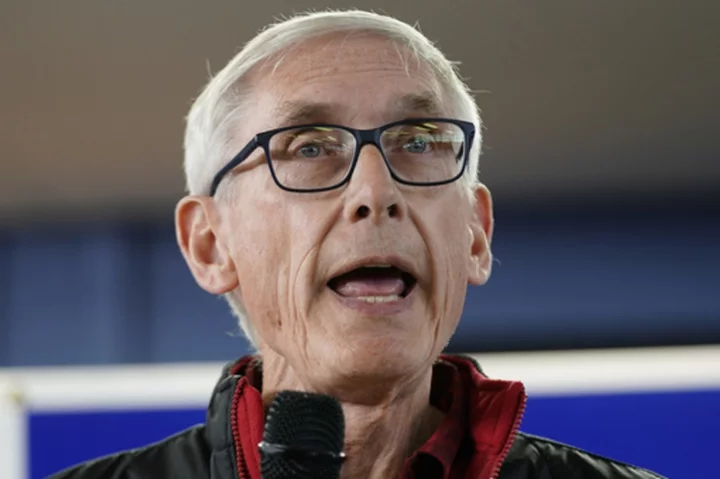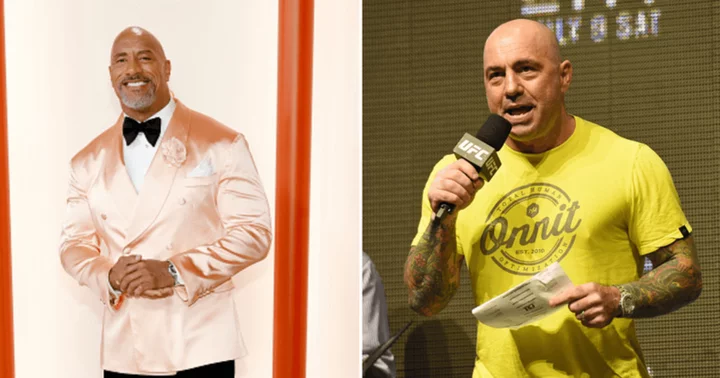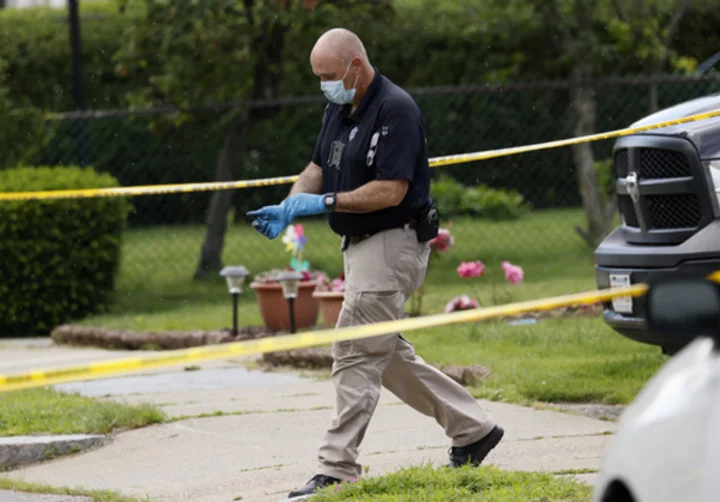MADISON, Wis. (AP) — Wisconsin Democratic Gov. Tony Evers on Tuesday sued the Republican-controlled Legislature, arguing that it is obstructing basic government functions, including signing off on pay raises for university employees that were previously approved.
Evers is asking the liberal-controlled Wisconsin Supreme Court to take the case directly, bypassing lower courts.
Republican legislative leaders, Senate Majority Leader Devin LeMahieu and Assembly Speaker Robin Vos, did not immediately return emails seeking comment.
In addition to not approving the pay raises for about 35,000 University of Wisconsin employees, Evers argues that the Legislature is blocking state conservation programs, updates to the state's commercial building standards and ethics standards for licensed professionals.
The Legislature included a 6% pay raise for UW employees over two years in the state budget it passed earlier this year that Evers signed. But pay raises also must then be approved by a committee of legislative leaders. That panel on Oct. 17 approved pay raises for state workers, but not UW employees because Republican Assembly Speaker Robin Vos opposes spending at the university for diversity, equity and inclusion efforts and positions.
Evers argues in the lawsuit that the Legislature is breaking the state constitution and separation of powers by creating “legislative vetoes” through which committees controlled by a few Republican lawmakers can block actions of the executive branch.
The lawsuit contends that the Legislature is effectively attempting to change state law without passing a bill and sending it to the governor for either approval or a veto. The lawsuit contends that similar efforts by legislatures have been struck down by courts in Alaska, Kentucky, Michigan, Missouri, New Jersey, and West Virginia.
“Republican legislators are unconstitutionally obstructing basic functions of government—actions that have not only aimed to prevent state government from efficiently and effectively serving the people of our state but are now actively harming tens of thousands of Wisconsinites every day across our state,” Evers said in a statement.
The lawsuit argues that the state Supreme Court should take the case directly because of its significant statewide impact and the harm from blocking the pay raises, delaying programs and failing to achieve modern building standards. Four of the court’s seven justices, who are elected, are liberals, giving them a majority.
If the court agrees to accept the case, it would then set deadlines for arguments within weeks. Otherwise the case would have to work its way through the lower courts first, which would likely take months or longer.









